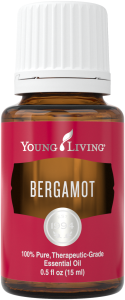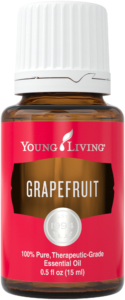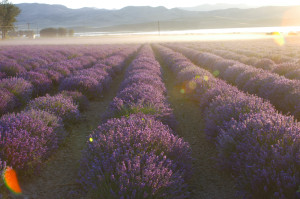
Hot and sunny days are rolling in like a wave of sun, and to be honest – who doesn’t long for a few relaxing days out in the sun? You relaxing in your favourite lounge chair, playing in the waves or strolling up sunny hillsides. While diving in sunny warm flurry and fun, remember the save application of you favourite essential oils!
![]() The so called “photosensitive essential oils” increase the suns power, so that they might get you burned like a sunburn if you wear these oil in direct sunlight. Thats why it is so important to ensure that your favourites aren’t essential oils that can cause sun sensitivity.
The so called “photosensitive essential oils” increase the suns power, so that they might get you burned like a sunburn if you wear these oil in direct sunlight. Thats why it is so important to ensure that your favourites aren’t essential oils that can cause sun sensitivity.
What makes an essential oil photosensitive?
While known for their bright, summery scents, citrus oils are among the most common essential oils that cause photosensitivity. That’s because compounds found in citrus oils—known as furanocoumarins—greatly increase UV sensitivity. And while most photosensitive oils are citrus, other oils can contain compounds or mixes of compounds ![]() that have the same effect as furanocoumarins, meaning they’re not sun-safe either.
that have the same effect as furanocoumarins, meaning they’re not sun-safe either.
How do I find out if an oil causes photosensitivity?
Essential Oils that cause photosensitivity are: Lemon, Grapefruit, Orange, Bergamot, Lime, Tangerine and all the blends they are part of, like Peace & Calming, Stress Away, Citrus Fresh, Gentle Baby and Joy.
Do I have to live without my favourite oils all summer??
 Use photosensitive oils at nighttime. Add them to your nightly skin routine, evening body wash or lotion, bedtime bath or relaxing before-bed foot, neck, or back massage. Of course you can also wear them on body parts that are shielded form the sun – like the souls of your feet, your neck and head if sou wear a hat, your belly and back if you wear a T-Shirt or on legs if you cover them with a skirt or pants. Just make sure that anywhere you apply photosensitive essential oils is fully covered with a heavy or tightly knit material
Use photosensitive oils at nighttime. Add them to your nightly skin routine, evening body wash or lotion, bedtime bath or relaxing before-bed foot, neck, or back massage. Of course you can also wear them on body parts that are shielded form the sun – like the souls of your feet, your neck and head if sou wear a hat, your belly and back if you wear a T-Shirt or on legs if you cover them with a skirt or pants. Just make sure that anywhere you apply photosensitive essential oils is fully covered with a heavy or tightly knit material
The best way to avoid a negative reaction is to follow this simple rule: Most undiluted photosensitive oils require 12 hours before sun exposure but some can take up to 48 hours. Be aware that the amount you use and whether you dilute both affect the
 concentration of photosensitive compounds—and always remember that sunscreen helps you stay safe in the sun.
concentration of photosensitive compounds—and always remember that sunscreen helps you stay safe in the sun.
What can you do if you get a reaction?
If you or someone you know is having a reaction, get away from UV exposure and:
- Dilute and rinse the skin with vegetable oil to dilute the essential oil,
- Rub yourself with Lavender and Coconut oil to soothe the reaction.
Always obtain medical advice if the skin is painful or the reaction covers a substantialportion of the body.






